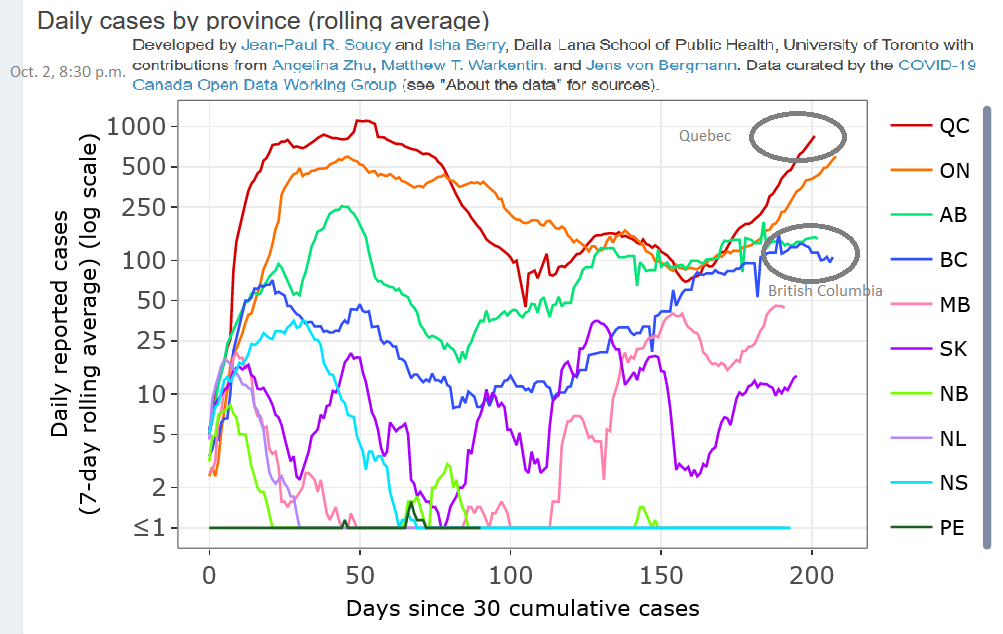
1) Quebec is now beset with more than 500 #COVID19 outbreaks as the province posted a record 1,364 infections on Tuesday amid an upswing in hospitalizations and deaths. In this thread, I will assess whether the second wave in the #pandemic may prove more dangerous than the first.
2) Certainly, the potential is there for a more dangerous second wave. That’s because unlike the shutdown of the first wave, schools have reopened, and many businesses are still operating. At the same time, Quebec’s health-care system is stretched to the limit as never before.
3) And as the weather grows colder, more people will congregate indoors, providing the opportunity for the contagious #coronavirus to spread more easily. In November, the annual flu season will be upon us, raising the prospect of a Twindemic — #COVID19 coupled with the flu.
4) In order to head off a potential Twindemic, experts have recommended Quebec make the flu vaccine available to everyone for free. Quebec has decided against that plan. Australia’s flu season was very mild. Let’s hope this augurs well for North America this fall and winter.
5) On Tuesday, Health Minister Christian Dubé addressed a tougher press corps, urging Quebecers to stay at home during the upcoming Thanksgiving Day weekend. He expressed concern about rising #COVID19 deaths and hospitalizations, and the fact this is happening all over Quebec.
6) If left unchecked, the #coronavirus has the potential to cause a lot more deaths than the 66 observed in the past seven days. Will the second wave prove deadlier than the first? So far, the virus is circulating mostly among younger Quebecers who are less likely to die.
7) Perhaps the greater danger is to Quebec’s acute-care health network, which the government worked so hard to protect during the first wave. Hospital ER overcrowding has become a massive problem, as the chart below conveys. A few outbreaks have started to erupt in hospitals. 
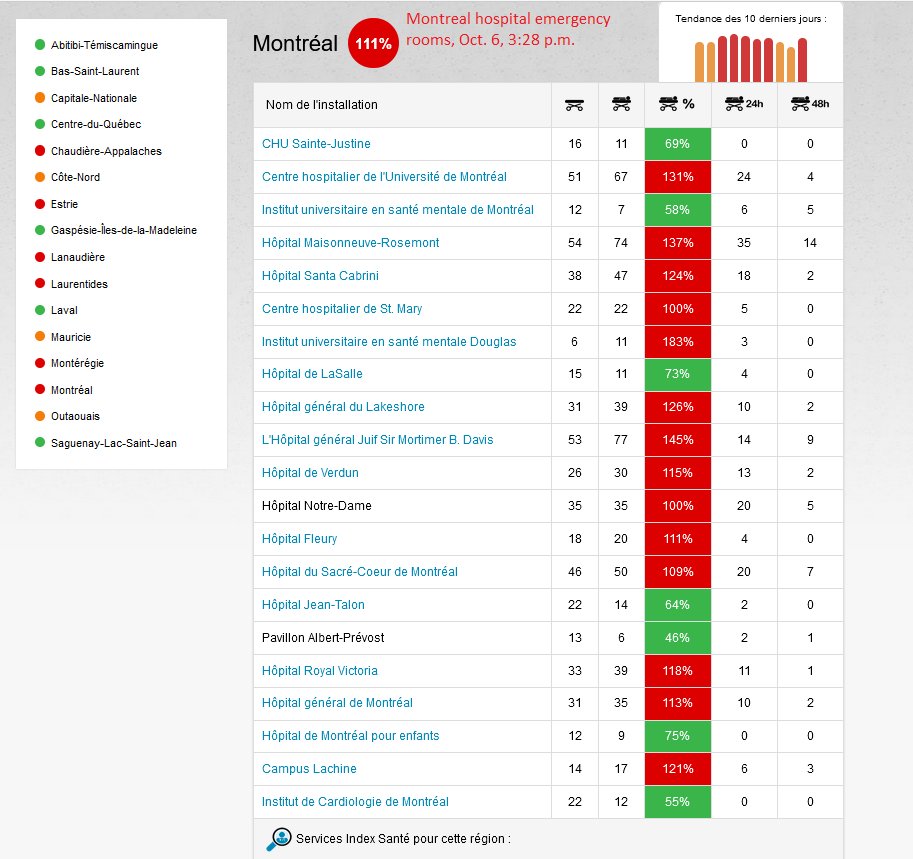
8) Health-care staff are exhausted and there are 1,600 fewer nurses across the province than during the first wave. Cancer treatments are at risk of being put off again. There is no more give in the system should #COVID19 hospitalizations and outbreaks ramp up.
9) The worse-case scenario of overwhelmed hospitals may not be too far off, health workers fear. The government must prepare Quebecers for more drastic action, including the last resort of closing more businesses and maybe even schools. Quebecers deserve to know what’s at stake.
10) Montreal declared 442 more #COVID19 cases Tuesday, according to the rising orange line in the chart below. The city’s seven-day average jumped to 174 infections per million population, up from 160 on Monday. Are the current #pandemic restrictions enough to stop this spread? 
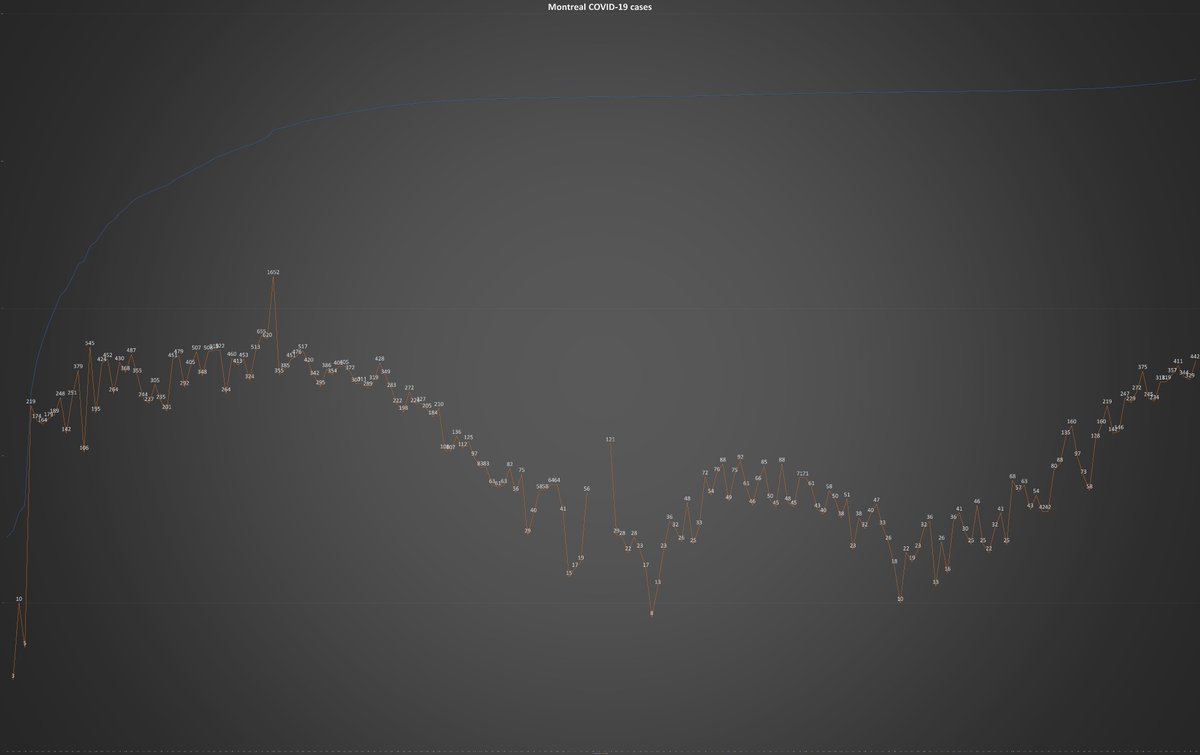
11) No district in the city has been spared from the #coronavirus. The city’s hot spots are found in its centre, the north end and the east end, as the chart below makes clear. The transmission is mostly at the community level, but there are signs of spread among health workers. 
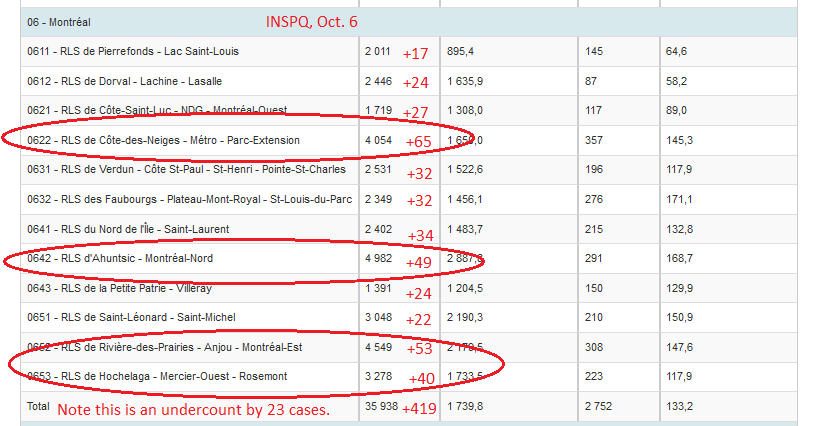
12) In conclusion, Montreal added three #COVID19 fatalities to a death toll that has soared to 3,487. The last time the city recorded as many deaths in a day was more than three weeks ago. We must all steel ourselves for what could come. End of thread. Please stay safe everyone. 
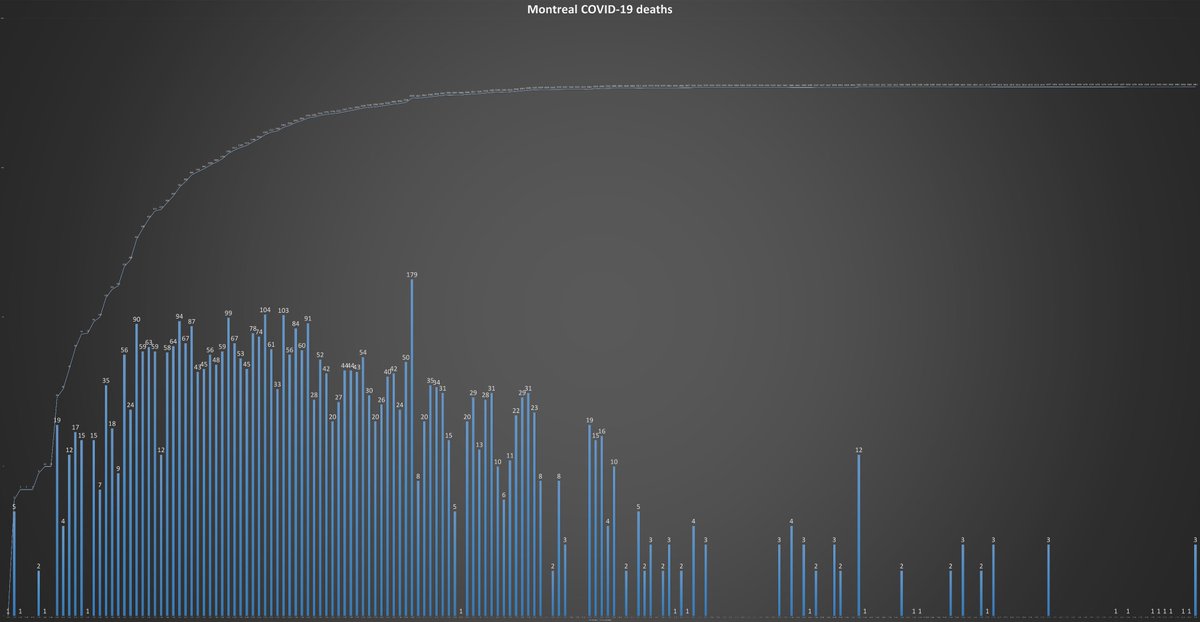
• • •
Missing some Tweet in this thread? You can try to
force a refresh


